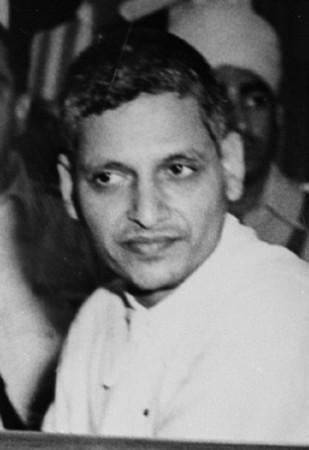Mahatma Gandhi's method of non-violence and peaceful protest to express discontent and push for a change has gained momentum like never before.
1940s was a difficult period for India. Years of freedom struggle movement and prolonged poverty due to foreign occupation had debilitated the nation. In 1947, when India gained Independence from the British rule, it came with partition which was horrific on many fronts. The massacre that ensued partition had killed half a million people and displaced other tens of millions. All this had disturbed Mahatma Gandhi a great deal because all his life he had worked to bridge the gap between Hindus and Muslims.
It was in this shock of being unable to foster harmony among the two communities and desist from indulging in violent acts during partition that he went on fast-unto-death on January 13, 1948. Though, after ten days, two lakhs people of different faith signed peace pledge declaring living in peace in the country, Mahatma Gandhi ended his fast on January 18.

On the 27th, he visited the tomb of the 13th century saint Qutubuddin Bakhtiyar in Mehrauli. A crowd in excess of ten thousand people had come to greet him. In a brief speech, Gandhi urged "the Hindus, Sikhs and Muslims who have come here with cleansed hearts to take a vow at this holy place that you will never allow strife to raise its head, but will live in amity, united as friends and brothers".
And on January 30, still weak and frail from hunger and old age, he was fatally shot at by one Nathuram Godse.
Who was Nathuram Godse and why he killed Mahatma Gandhi:

There were many who were not happy with Mahatma Gandhi's idea of harmony between Hindus and Muslims. One of them was Nathuram Godse. An advocate of Hindu nationalism, Godse believed Gandhi to have favoured Indian Muslims over Hindus, and that his insistence on non-violence and non-retaliation prevented Hindus from defending themselves against attack during partition.
How relevant are Mahatma Gandhi's teachings now:
Mahatma Gandhis' philosophical principles and writings continue to inspire millions of people around the globe to this day. His method of non-violence and peaceful protest to express discontent and push for a change has gained momentum like never before. From Hong Kong to Chile to France, citizens have adopted peaceful protest as their way of dissent.
His teachings in light of current protests in India:
As the nation is under the grip of protest over CAA from different quarters, it would a timely idea to ponder on what Mahatma Gandhi said on the issue of accepting people from Pakistan and other countries:
On July 10, 1947, he said:
"If people flee their homes in Sindh and other places out of fear and come here, shall we turn them away? If we do so, with what face shall we call ourselves Indians? How can we chant the slogan Jai Hind? Welcome them saying, this too is your country just as that is your country. This is how we should deal with them. If nationalist Muslims are also forced to leave Pakistan and come here, then they too will live here. As Hindustanis, we all have the same standing. If this cannot be, then Hindustan cannot come into being."
BJP government's view on Nathuram Godse
Some of the BJP leaders like Pragya Thakur, Anantkumar Hegde and Usha Thakur have publicly praised Nathuram Godse. They have gone to the extent of saying that Nathuram Godse was a patriot and a 'nationalist' who was concerned about the country and that it was a small mistake that he killed Mahatma Gandhi.
However, senior BJP leadership distanced itself from their leaders' remarks and condemned any philosophy which describes Mahatma Gandhi's philosophy as patriot.
It's not only the BJP leaders who occasionally go on to praise Nathuram Godse and his ideology, there have been some instances by the government organizations that hasve raised the doubt on how it view the assassination of Mahatma Gandhi. In a news report on January 24, 2019, a debate was sparked when certain historic photographs taken at the time of Mahatma Gandhi's assassination on display at Delhi's Gandhi Smriti were removed.
Mahatma Gandhi's great-grandson Tushar Gandhi alleged that it was an equivalent to erasing historic evidence.
Celebrating 72nd death anniversary of Mahatma Gandhi as Martyrs' Day hold a special significance in current times. When people around the world are discontent with their government for its policies and actions, Mahatma Gandhi's teaching and philosophy are relevant more than ever before, both for those who govern and are governed.

















